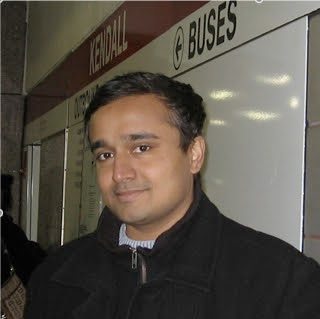Vijay Ganesh

Talk: On The Unreasonable Effectiveness of Boolean SAT Solvers
- Date and Time
- June 15, 2017 at 11:00a
- Location
Abstract
Modern conflict-driven clause-learning (CDCL) Boolean SAT solvers routinely solve very large industrial SAT instances in relatively short periods of time. This phenomenon has stumped both theoreticians and practitioners since Boolean satisfiability is an NP-complete problem widely believed to be intractable. It is clear that these solvers somehow exploit the structure of real-world instances. However, to-date there have been few results that precisely characterize this structure or shed any light on why these SAT solvers are so efficient.
In this talk, I will present results that provide a deeper empirical understanding of why CDCL SAT solvers are so efficient, which may eventually lead to a complexity-theoretic result. Our results can be divided into two parts. First, I will talk about structural parameters that can characterize industrial instances and shed light on why they are easier to solve even though they may contain millions of variables. Second, I will talk about internals of CDCL SAT solvers, and describe why they are particularly suited to solve industrial instances.
Bio
Dr. Vijay Ganesh is an assistant professor at the University of Waterloo since 2012. Prior to that he was a research scientist at MIT, and completed his PhD in computer science from Stanford University in
- Vijay’s primary area of research is the theory and practice of automated reasoning aimed at software engineering, formal methods, security, and mathematics. In this context he has led the development of many SAT/SMT solvers, most notably, STP, The Z3 string solver, MapleSAT, and MathCheck. He has also proved several decidability and complexity results relating to the SATisfiability problem for various mathematical theories. For his research, he has won over 21 awards, medals, and distinctions including an ACM Test of Time Award at CCS 2016, two Google Faculty Research Awards in 2011 and 2013, and a Ten-Year Most Influential Paper Award at DATE 2008.
